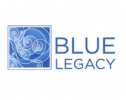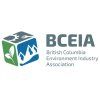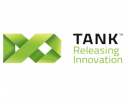Blog Post: Cape Cod drinking water supply, one of the most contaminated in the US – Are septic systems to blame?
A study carried out by the Silent Spring Institute (Newton, MA) has identified substantial quantities of chemicals of emerging concern (CECs), including pharmaceuticals and flame retardants in the ground water supply of Cape Cod. Older and failing septic system waste water treatment is identified as the leading source of contamination.
The comprehensive study compiled concentration data for 34 CECs from 16 published studies to determine their treatment, transport, removal accumulation in the Cape Cod water supply.
Some of the most startling findings from the report include
- 85% of private wells contained CECs including artificial sweetener, antibiotics and several perfluorinated chemicals
- The most impacted wells in-line with the most contaminated drinking water supplies so far reported in the U.S.
- Three CECs with the highest concentrations in leach field effluent were caffeine, nonylphenol, and sulfamethoxazole.
- The lowest median removal efficiencies using septic systems were observed for sulfamethoxazole, carbamazepine, and TCEP
- The levels of dissolved oxygen were a key determinant of CEC persistence during septic system treatment – concentrations of several estrogens, pharmaceuticals, and caffeine but dropped to non-detectable levels within aerobic portions of the leach-field
Summary:
The results show that while considerable reductions in CEC concentrations occur during onsite treatment, substantial quantities of some CECs are released into Cape groundwater, particularly in densely developed residential areas. Furthermore, failing septic systems and systems with older designs will provide less effective CEC removal.
*Contaminants of Emerging Concern and Septic Systems: A Synthesis of Scientific Literature and Application to Groundwater Quality on Cape Cod. Laurel Schaider, Kathryn Rodgers, Ruthann Rudel, Silent Spring Institute Newton, MA. September 2013
For more information see
Category:

































